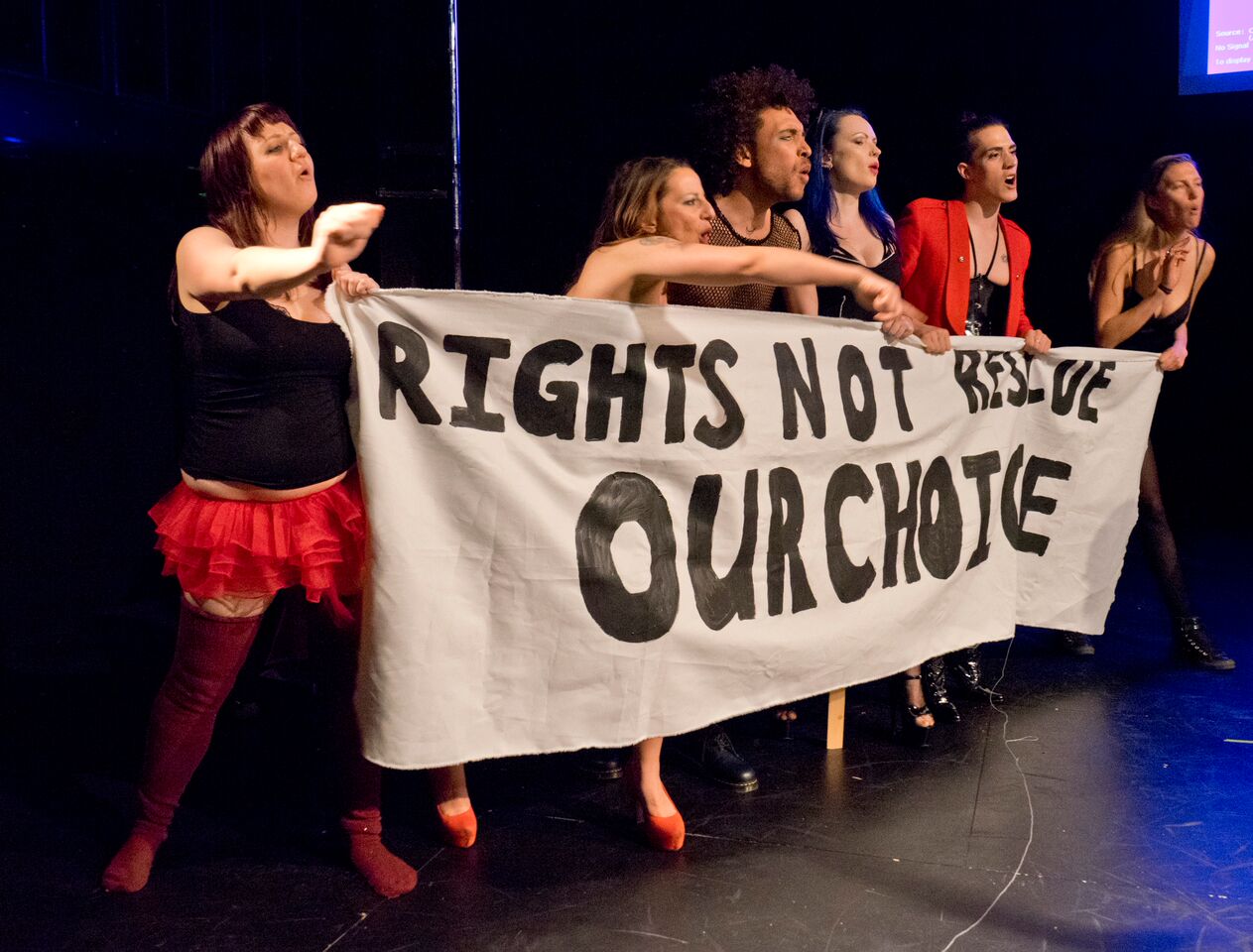The opera that shows what sex workers really think
'Sex workers are natural improvisers - it does appear to be part of the job'

Opera has not been kind to sex workers, historically. La Traviata’s Violetta, the genre’s most famous denizen, dies sick in her spurned lover’s arms.
No wonder then, that as a new Parliamentary inquiry debates prostitution law reform, sex workers are reclaiming a London stage. And the Sex Workers’ Opera may be one of the most important pieces of theatre you see this year.
It weaves together true accounts of life in the world’s oldest profession, collected from more than 50 workers in 17 countries.
“We’re not saying ‘sex work is really bad’ or ‘sex work is really great’”, says co-director Siobhan Knox, in an interview with the Independent.
“We're saying: ‘we should listen to sex workers.’ Everyone has opinions on sex work, but do we ask sex workers what they think?”
Half of the show’s cast and crew are sex workers in real life, though which half is never revealed. Despite little rehearsal time, there is some astonishing vocal – and pole-dancing – talent among the variously female, male, genderqueer and trans team.
“Sex workers are natural improvisers”, says Ms Knox.
“It does appear to be part of the job.”
Traditional arias, jazz, hip hop and electronica provide the score to almost three hours of mostly stand-alone scenes, each a window onto the experience of working in the sex industry.
Two of the few recurring characters are an anti sex-work, feminist mother and her sex worker daughter, berated for her occupation. The mother acted as a mouthpiece for the “burning questions” audience members might want answered, says Ms Knox.
“What if it was your kid?” the mother asks.
I am reminded of sex worker activist Toni Mac’s TED talk, in which she suggests that that question is the wrong one to ask.
“Instead, imagine she is doing it”, Ms Mac says.
“How safe is she at work tonight? Why isn't she safer?”
Because, the Sex Workers Opera points out, the UK hasn’t decriminalised sex work. Selling consensual sex is only legal if you work alone and in private, which heavily compromises workers’ safety.
Unsympathetic police attitudes towards sex workers, illustrated in a re-enactment of 2014’s police raids on Soho sex industry premises, mean workers are often persecuted, not protected, when at their most vulnerable.
The production explains how current laws in Norway, Sweden, and France, under which the buyer of sex is criminalised, can endanger the sex worker, as they drive the industry underground and deter sex workers from using the authorities supposed to protect them.
Humour sugar-coats the activist message of the production. Pro-sex work and anti-sex work feminists shout the same slogans at each other, each in support of their own cause, drawing wry laughs.
Cabaret-esque scenarios reveal surprising sexual fetishes. The emotional labour of sex work is shown, too. A client reveals his feelings to his escort, only to be told that the commercial relationship becoming a romantic one would be akin to a restaurant diner suddenly ceasing to pay for meals he continues to enjoy.
The production is too long; three hours of distinct vignettes is tiring, without an overarching plot arc. Sometimes the characters’ role as mouthpieces is slightly flat. Focusing on a few figures’ lives in depth might have helped.
Stereotypes of sex workers are mocked to powerful effect – the sex worker-turned-nun and the Pretty Woman-type beauty ‘saved’ by the wealthy man.
But the distressed sex worker crying ‘pain!’, presented as pastiche, implies that no sex worker is unhappy with what they do. This strikes a strange note, given that many pro-decriminalisation sex work groups make a point of helping members find alternatives to sex work if they so wish.
These points aside, the direction transforms a panoply of fifty marginalised voices into a rare, intimate and sensitive insight into the sex industry, delivered from the inside - a position often ignored or stigmatised.
“Nothing about us without us”, chant the cast in the finale.
The Home Affairs Committee into sex work would do well to take an excursion to The Pleasance Theatre.
The Sex Workers Opera runs at The Pleasance Theatre until 29 May. Tickets from £10.
Subscribe to Independent Premium to bookmark this article
Want to bookmark your favourite articles and stories to read or reference later? Start your Independent Premium subscription today.

Join our commenting forum
Join thought-provoking conversations, follow other Independent readers and see their replies